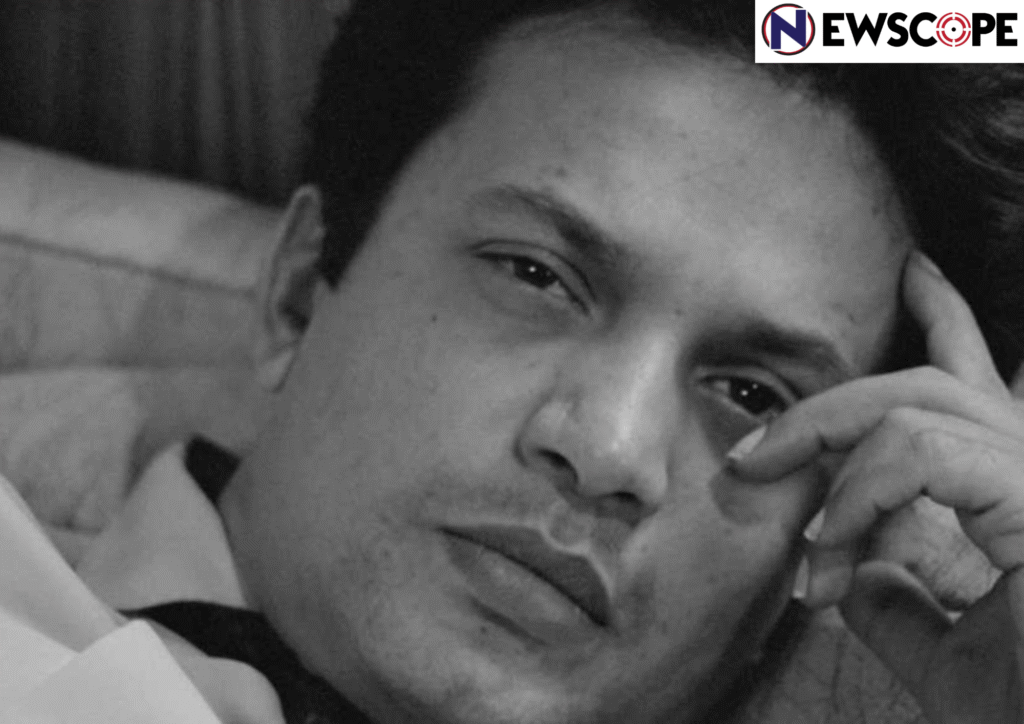Four decades and a couple of years have gone by since Uttam Kumar’s passing. And yet July 24, when he journeyed to the land of shadows remains a day of mourning among his fans, a tribe which is increasing though many in it were born years after his death.
One cannot be faulted if he/she contends that Uttam Kumar joined the immortals’ ranks post his death. But the moot question remains how did he achieve it.
He burst into silver screen together with Suchitra Sen in SareChuattor as a balm to a partitioned state plagued by a flood of refugees and the problems of their well being and lack of it. His dramatic debut with success read his first hit film had the same element of surprise when he suffered a stroke during the shooting of OgoBodhuSundari and passed away.
In life and death, Uttam Kumar basked in the adulation of the crowd cutting across generations. The city called Calcutta then stood still as it’s residents often the women outnumbering the men poured into the streets to bade him their last farewell.
Be it the elderly matriach or the next door girl, an undergraduate student dreaming of becoming a filmmaker or the middle aged office goer and if course the leading .men and women of the Tollygunge film studios in the city as well as the faceless technicians who looked upon the deceased hero as their guardian walked in a procession.Amidst it, the mortal remains of Uttam Kumar on board a truck was the cynosure of all eyes.
Bedecked with garlands and with loving touches of sandalwood paste, the heart throb of Bengali cinema was going on his last journey. Absence of mobile phones and social media, unheard of then could not come in the way of the news of the tragedy spreading like wildfire.
Many of Kumar’s fans not known for their atheleticism climbed trees and perched dangerously atop cranes of the underground railway which was being built then. All they were seeking a vantage point to have a last look at the man who had charmed them on the silver screen as a prince in Jhinder Bondi and the man on the street in Sabarmati.
Indeed Uttam Kumar personified different characters to almost every individual. He was a perfect matinee idol Arindam, dogged by fesr of flops in Satyajit Ray’s Nayak to his film fraternity.
At the other end of the divide, he fitted lijeva glove in the role of a woman trafficker who has made his pile in BaghbondiKhela. Be it a post divorce husband seeking marital peace in Jatugriha or a smuggling kingpin in Banhisikha, he has been there and done it.
No one could understand the angle of the camera on the film sets better than him. Never there was one in Bengali film fraternity who lived at the opposite end of complacency.
Uttam Kumar in life and death was a larger life persons than he was depicted in his films..For the roles he enacted had a core of realism with which his fans identified with.
He never type cast his performance. Inarguably, only he could enact the suave hotel receptionist in Chowringhee, the gifted singer who takes up a car driver:s job basking in the admiration of Tanuja in her debut in DeyaNewa or the hard drinking, womanising zaminder in Stree.
And all the time ke kept his stardom intact. In personal life, a perfect bhadralok who believed his “circle of friends”, the dream boy of Bengali films went by his heart instead of his head.
This is in a nutshell why Uttam Kumar refused Raj Kapoor’s offer to act in Sangam. Again it was his inability to see through the designs of his fair weather friends which led to the failure of Choti Si Mulaqat, his debut in Hindi films.
It was the darkest phase of his career when burden of debts almost brought him to his knees. If he repaid his creditors from the income from a spate of forgettable films, he suffered his first heart attack as a fallout of the strain.
His health never recovered but Uttam Kumar maintained it at an even keel. He continued to fetch a windfall for the producers.
Though Uttam Kumar made his presence felt in the Hindi film world
with a bang post Amanush and Ananda Ashram, it was never a comeback trail. Post the failure of his debut in what was then Bombay, he had ceased to be the man synonymous with hits.
Arguably he added brownie points to his status as a thespian during this period. Remember Thana ThekeAschi, Nagar Darpane, KalankitoNayak and of course Ami Shhe O Sakha and a lump rises in many throats at his absence.
One would not be wide off the mark to say that Uttam Kumar was denied his due honour on his passing as his mortal remains were not allowed to be rested for public viewing at the RabindraSadan foyer. The culture Czar of thebtgen dispensation dictated that his films did not depict the suffering of the masses.
But the fact remains that this act of discourtesy demeaned the man who who had ordered it. Decades after Uttam Kumar’s passing he continues to represent a social climate and culture which connects to the masses in a way no actor before him or since had done.
Uttam Kumar was an “instinctive actor”. The secret of his success lies in the fact that he could get under the screen of the character without much prodding from the director.
His life was in the flood lights. Decades after his death it continues to be so if retrospective of his films and the constant comparison drawn between his acting and present day performers of the stage and screen are anything to go by.



